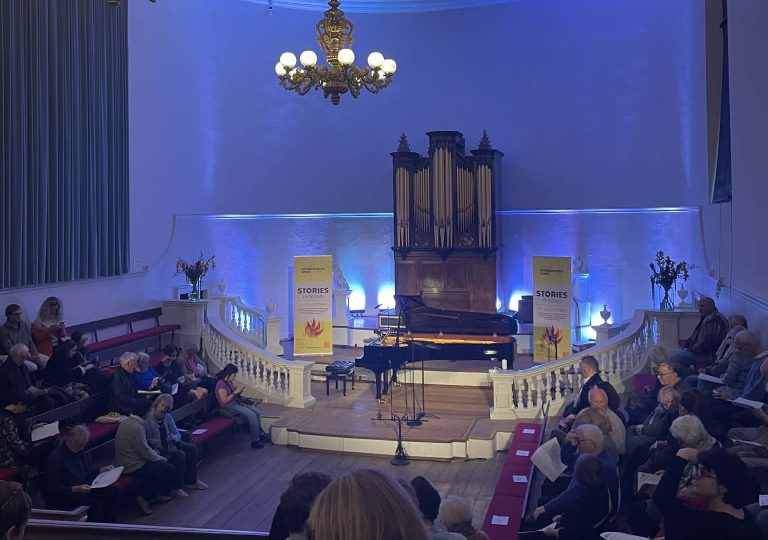The ornate, Latinate vocabulary. The debates peppered with witticisms. The patrician air, the untraceable accent, the playful glint in his eyes.
William F. Buckley was arguably the most influential American journalist of the 20th century. He was famous and influential not simply for his ideas but for the theatrical manner in which he delivered them – his distinct mannerisms, his performativity, his personality. Sam Tanenhaus captures this vividly in his captivating biography, Buckley: The Life and the Revolution That Changed America (2025), which uses Buckley’s life to illuminate the rise of 20th-century American conservatism.
Born in 1925 and raised on a grand estate in Connecticut, the young polemicist grew up in a cloistered world. At fifteen he left to attend boarding school, where he first entered politics, speaking out in favour of the “America First” movement that opposed US involvement in the Second World War. Even as a teenager, he demonstrated the uncompromising conviction that would define his public life. Tanenhaus notes the “ferocity of his attack” in debate and his belief that “overstatement increased the theatrical excitement for himself and his listeners” – an early glimpse of the performative politics he later mastered.
Buckley enrolled at Yale in 1946, sceptical that the full four years of study were truly necessary, yet Yale formed him. Tanenhaus describes him as “the uncrowned king of the Yale campus”. Even the predominantly left-leaning coterie of student journalists appointed the young conservative as Chairman of the Yale Daily News. In his first editorial as Chairman, Buckley vowed that there would be “no squeamishness about editorial subject matter”. He spent his year as Chairman unabashedly slamming what he saw as liberal homogeneity of thought on campus, even calling out professors. His columns were always met with clamorous criticism, yet everyone wanted to read what Buckley had to say – his eloquence and influence were undeniable.
Campus notoriety soon extended nationwide with the publication of his first book. God and Man at Yale (1951), a withering attack on his alma mater, argued that Yale no longer promoted its historic values of Christianity and free markets in favour of secularism and collectivism. To his surprise, it became a bestseller, and he was hailed as “the most exciting conservative writer in the land”.
Determined to pursue journalism, he created National Review (NR) in 1955 as the right’s intellectual vanguard intending “to change the nation’s political and intellectual climate”. He championed Barry Goldwater’s 1964 presidential campaign, hoping to free the GOP from its liberal establishment, and remained undeterred by Goldwater’s crushing defeat. Next came Firing Line, the public affairs program he hosted for 33 years, pitting him against leading intellectuals in long-form discussions about political and philosophical issues. It was on air for some 33 years. His “erudition and wordplay and courtly praise of his combatant” masked his desperation to defeat opponents. With his instinctual theatrical flair, Buckley was made for television.
Buckley’s ascendance coincided with the civil rights era. In 1957 Buckley wrote the infamous column “The South Must Prevail” defending the disenfranchisement of black Americans in the South by insisting that “the claims of civilisation supersede those of universal suffrage”. By 1969, however, he renounced his position, arguing that “we need a black president”– a startling transformation for a man known for unrivalled obstinacy.
During the turbulent 1968 presidential election, the TV network ABC invited Buckley to a series of debates with liberal intellectual Gore Vidal. Their clashes became a sensation, further elevating his profile and cementing his status as the foremost spokesperson for the conservative right. By the 1970s, he found in Ronald Raegan the political leader he had long sought. Reagan’s landslide election victory in 1980 was a realisation of the dream Buckley had harboured when he first set up NR in 1955. His politics had prevailed.
Tanenhaus is skilled at sketching the political environment of Buckley’s earlier years. Yet his analysis of the 1980s is thinner, an inevitable cost of Buckley’s success. Buckley was no longer the lone voice of counterrevolution. He had become the defender of a new status quo. The biography, however, is a riveting read, transporting the reader into the mind of a man whose “weapons were not his ideas, which could be heard elsewhere, but his words, which sparkled with freshness”. In the life of Buckley, a paradox emerges: he practiced a dying mode of politics whilst ushering in a new political age. All that he did – NR, his books, Firing Line, his debates with Vidal – smacked of the very intellectualism that is so disdained, yet he predicted the rise of performative politics and use of the media which is so central to the politics of today.











